- Smoke Signals: Navigating the Evolving Landscape of Nicotine and Tobacco Regulations
- Posts
- June 10, 2024 - JUUL FDA marketing denial orders rescinded
June 10, 2024 - JUUL FDA marketing denial orders rescinded
Issue #11 - Deep Dive into PMTA Knowledge Graphs 📊
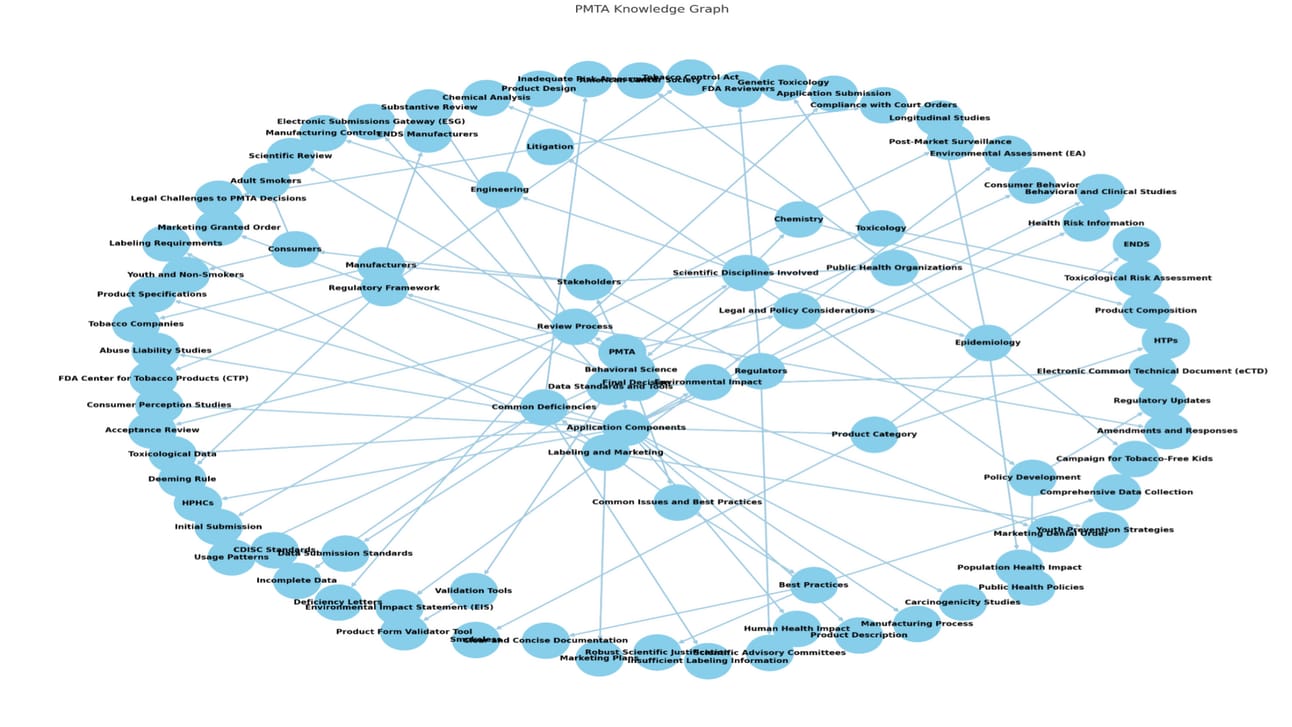
chat.pmta.ai - New domain for the PMTA chatbot released! 🤖
FDA CTP updated their Tobacco Product Applications: Metrics & Reporting website through March 31, 2024.
FDA updated its Import alert 98-06 on May 23, 2024 for “New tobacco products that do not have the required FDA marketing authorization”
FOIA requests were updated for May 2024. There were 9 new nicotine and tobacco-related FOIA requests and 15 closed-out FOIA requests.
The PMTA marketing denial orders (MDOs) for JUUL Labs, Inc. issued on June 23, 2022 were rescinded by FDA on June 6, 2024, almost two years after the initial decision.
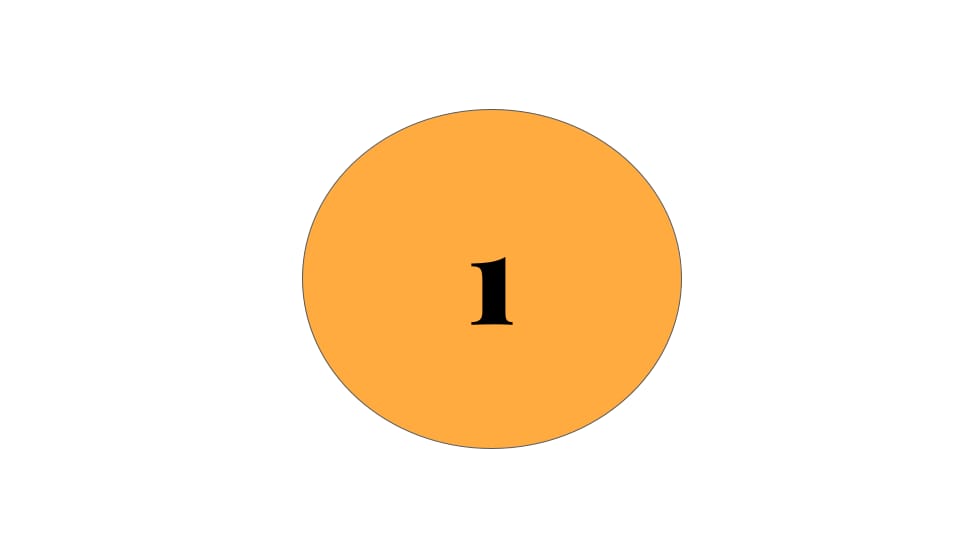
FDA Center for Tobacco Products updated their 'Tobacco Product Applications: Metrics & Reporting' website for review and actions through March 31, 2024.
FY 2024 Total-to-Date (October 2023-March 2024) data for ENDS PMTAs:
➢ 29,984 Accepted
➢ 6,454 Refuse-to-Accept (RTA)
➢ 582 Total Applications Received
➢ 0 Filed
➢ 0 Refuse-to-File (RTF)
➢ 0 Deficiency letters issued
➢ 0 Marketing Granted Orders issued
➢ 22,369 Marketing Denial Orders issued
There were almost 30K ENDS PMTAs accepted during this 6-month reporting period, indicating that there were a significant number of applications submitted during previous reporting periods that are working their way through the PMTA review process. Only 582 new tobacco product applications were received during this time which seems to indicate a focus on “first in, first reviewed” criteria as outlined in the recently released June 2022 CTP memo - Process for implementing new Acceptance and Filing Reviews for premarket tobacco product applications (PMTAs) based on new requirements under 21 CFR 1114
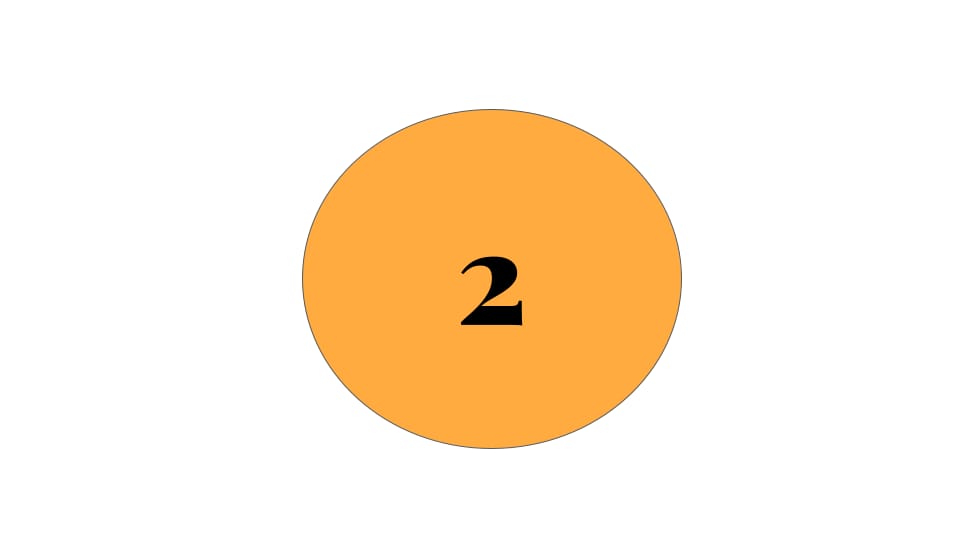
FDA updated its 98-06 import alert which represents the Agency's current guidance to FDA field personnel regarding the manufacturer(s) and/or products(s) at issue. Import Alert Name: "Detention Without Physical Examination (DWPE) of New Tobacco Products Without Required Marketing Authorization" The update to the “red list” includes several electronic nicotine delivery systems components/parts with product names such as Juicy Bar Brand Products and MR FOG Max Pro. The red list designation allows detainment of these tobacco products without physical examination upon import to the U.S.
Divisions may detain, without physical examination, the tobacco products identified on the Red List of this Import Alert. If the division is not sure whether a tobacco product is the same product as one identified on the Red List, the division should consult with the Center for Tobacco Products (CTP). CTP concurrence is required to add a product to the Red List.
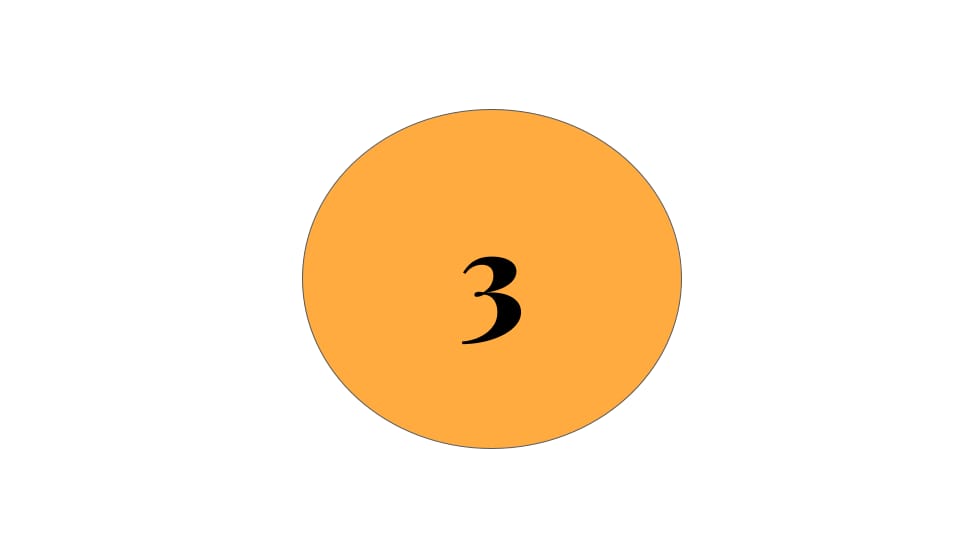
Freedom of Information Act (FOIA) requests related to nicotine and tobacco were released for May 2024. Of the 15 FOIA relevant requests that were closed out in May, the consequential Technical Project Lead (TPL) memos requested were all withdrawn closed w/o charges. New requests (9) included several from tobacco manufacturers looking for information related to application content and decision summaries.
An interesting article was released related to FOIA requests in the nicotine industry - FOIAengine: Hundreds of FOIA Requests Signaled Challenge to FDA. It is unclear whether a meaningful amount of these FOIA requests have ever been filled and closed out. The current FOIA turnaround time is at least 6 months from request to close out but certain requests can be out for years. For example, a Campaign for Tobacco Free Kids FOIA request for ‘Requesting copies of all marketing denial orders (MDOs) issued to e-cigarette manufacturers’ submitted in June 2021 was withdrawn and closed without charges after almost 1100 days.
Washington-based Kleinfeld Kaplan & Becker, which specializes in FDA law, logged 114 FOIA requests, all but a few of those to the FDA, from October 2020 through April 2024 (the most recent month available). Tobacco- and vaping-related FOIA requests predominated. In April, the law firm made 25 identical FOIA requests to the FDA for Marketing Denial Orders (MDOs) issued against various vaping-industry players – including Vapetasia and Wages and White Lion. We reached out to Kleinfeld Kaplan, but the law firm didn’t respond to our questions about why it filed those identical requests. Kleinfeld Kaplan isn’t listed as counsel for any of the parties in the Wages and White Lion case.
Keller & Heckman, with offices in Washington and elsewhere, filed 155 FOIA requests with the FDA during the same four-year period. Keller & Heckman calls itself “the premier global law firm” serving companies that produce “tobacco, nicotine, e-cigarettes, or related products such as cannabis, hemp, or CBD, or are engaged in the vaping supply chain.” The Keller & Heckman FOIA requests in our FOIAengine database were filed on behalf of a broad range of vaping-industry clients seeking details about product inspections, approvals, and denials. Docket Alarm lists hundreds of court cases in which Keller & Heckman is or has been involved. But the law firm didn’t show up as counsel for any of the parties in the Wages and White Lion case.
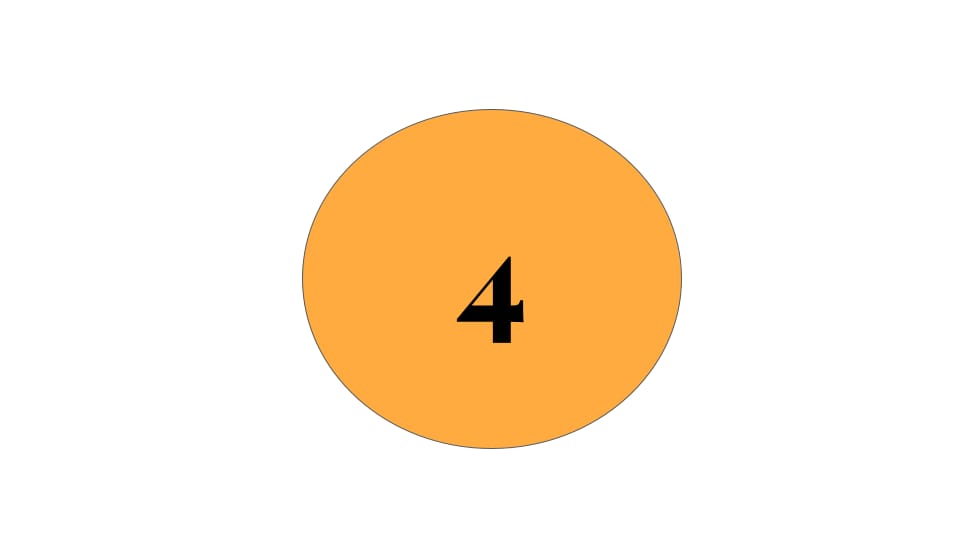

The JUUL PMTA MDOs were rescinded on June 6, 2024. PMTAs will go back into substantive (scientific) review at FDA CTP. This announcement comes almost two years after the MDOs were issued on June 23, 2022. A timeline of events:
➢ JUUL submitted PMTAs to FDA for the JUUL Device and JUULpods on July 30, 2020.
➢ MDOs were issued by FDA on June 23, 2022.
➢ On July 5, 2022, the FDA administratively stayed the MDOs after determining that certain scientific issues warranted additional review. This allowed the JUUL products to remain on the U.S. market.
➢ On July 29, 2022 JUUL Labs submitted a 10.75 appeal to FDA requesting several relief items including a supervisory review of the MDO and related deficiencies.
➢ On June 6, 2024 FDA rescinded the MDOs including a reasoning for the rescission.
Today, the FDA rescinded the MDOs issued in June 2022 to JUUL Labs, Inc. This action is being taken, in part, as a result of the new case law, as well as the FDA’s review of information provided by the applicant. Rescission of the MDOs is not an authorization or a denial and does not indicate whether the applications are likely to be authorized or denied. Rescission of the MDOs returns the applications to pending status, under substantive review by the FDA. The FDA's regulations significantly limit what the agency can disclose regarding the content of pending applications.
FDA Center for Tobacco Products
In other JUUL news, on May 30, 2024 almost 400K JUUL Labs documents were released to the UCSF Industry Documents Library. These are internal JUUL documents released as a part of a settlement with the state of North Carolina in 2021 and include social media monitoring presentations and other strategic documents.
Deep Dive - Creating a Knowledge Graph
Knowledge Graph: Premarket Tobacco Product Application (PMTA)
What is a knowledge graph? A knowledge graph, also known as a semantic network, represents a network of real-world entities—i.e. objects, events, situations, or concepts—and illustrates the relationship between them. This information is usually stored in a graph database and visualized as a graph structure, prompting the term knowledge “graph.” A knowledge graph is made up of three main components: nodes, edges, and labels. Any object, place, or person can be a node. An edge defines the relationship between the nodes. Knowledge graphs are powerful tools for managing and leveraging complex information, making them valuable in fields like regulatory science, where understanding the relationships between various data points is crucial.
1. Regulatory Framework
FDA Center for Tobacco Products (CTP)
Tobacco Control Act
Deeming Rule
2. Application Components
Product Description
Product Category (e.g., ENDS, HTPs, Smokeless)
Product Specifications
Manufacturing Process
Health Risk Information
Harmful and Potentially Harmful Constituents (HPHCs)
Toxicological Data
Carcinogenicity Studies
Behavioral and Clinical Studies
Human Health Impact
Abuse Liability Studies
Consumer Perception Studies
Environmental Impact
Environmental Assessment (EA)
Environmental Impact Statement (EIS)
Labeling and Marketing
Labeling Requirements
Marketing Plans
Youth Prevention Strategies
3. Review Process
Initial Submission
Application Submission
Acceptance Review
Substantive Review
Scientific Review
Deficiency Letters
Amendments and Responses
Final Decision
Marketing Granted Order
Marketing Denial Order
Post-Market Surveillance
4. Scientific Disciplines Involved
Chemistry
Product Composition
Chemical Analysis
Toxicology
Toxicological Risk Assessment
Genetic Toxicology
Engineering
Product Design
Manufacturing Controls
Behavioral Science
Consumer Behavior
Usage Patterns
Epidemiology
Population Health Impact
Longitudinal Studies
5. Data Standards and Tools
Data Submission Standards
CDISC Standards
Electronic Common Technical Document (eCTD)
Validation Tools
Product Form Validator Tool
Electronic Submissions Gateway (ESG)
6. Common Issues and Best Practices
Common Deficiencies
Incomplete Data
Inadequate Risk Assessment
Insufficient Labeling Information
Best Practices
Comprehensive Data Collection
Clear and Concise Documentation
Robust Scientific Justification
7. Stakeholders
Manufacturers
Tobacco Companies
ENDS Manufacturers
Regulators
FDA Reviewers
Scientific Advisory Committees
Public Health Organizations
American Cancer Society
Campaign for Tobacco-Free Kids
Consumers
Adult Smokers
Youth and Non-Smokers
8. Legal and Policy Considerations
Litigation
Legal Challenges to PMTA Decisions
Compliance with Court Orders
Policy Development
Regulatory Updates
Public Health Policies
This knowledge graph provides a comprehensive overview of the various topics associated with a PMTA, highlighting the interconnected nature of the regulatory framework, application components, review process, scientific disciplines involved, data standards and tools, common issues and best practices, stakeholders, and legal and policy considerations.
Resource Links
Chatbots
PMTA MGO Chatbot - This large language model (LLM) response agent was trained on several PMTA marketing granted orders and their respective technical project lead memos issued by FDA CTP. You can create prompts like “Walk through, step-by-step, the PMTA process from submission to postmarket reporting and provide specific actions related to each step of the review process.” This is very much a proof-of-concept exercise but responses are improving.
I am making available a strategic analysis of CTP Application Job Aids. This resource provides a step-by-step analysis of the job aids provided to FDA CTP reviewers assigned to premarket tobacco product applications (PTMA), exemption request (EX) and substantial equivalence (SE) applications submitted under sections 910(a), 905(j)(A)(3) or 905(j), respectively, of the Federal Food, Drug, and Cosmetic Act (FD&C Act). The document includes the strategic analysis as well as the job aids.